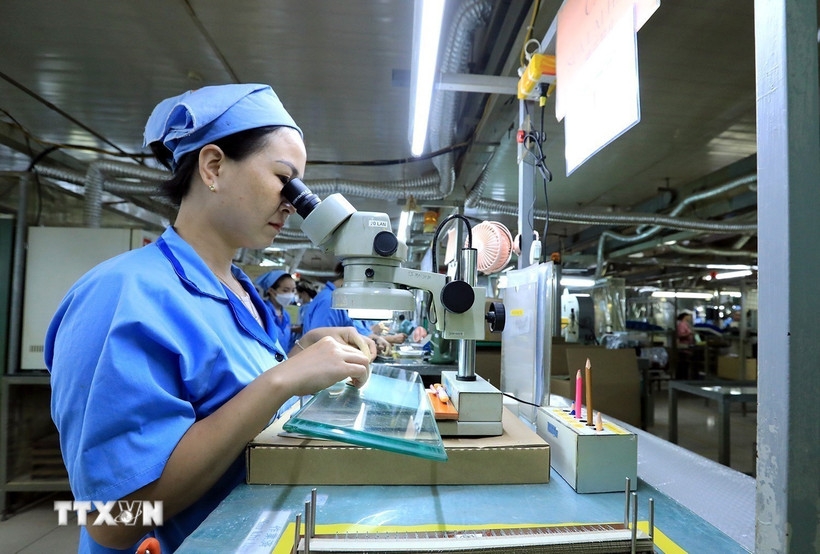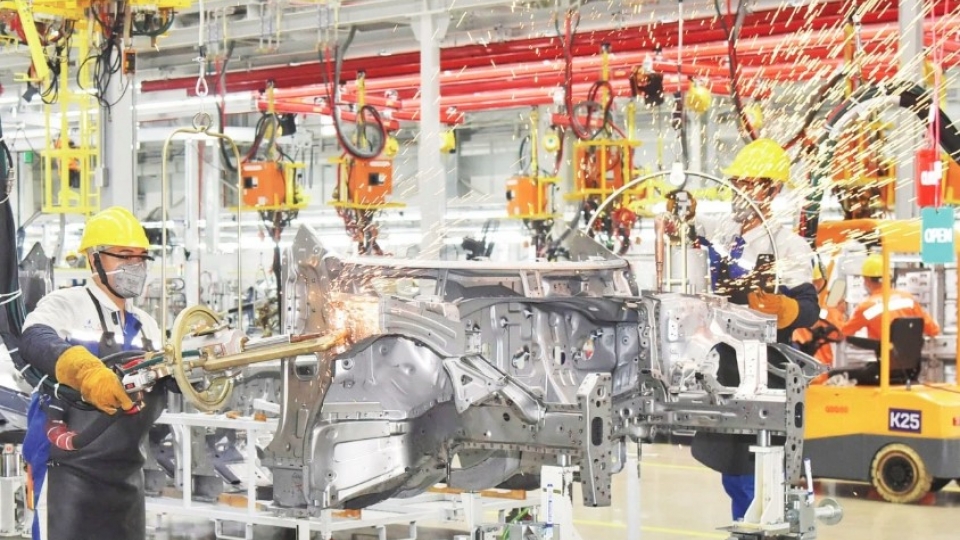Investors eye Vietnam as next FDI hub, urge clearer policy enforcement
Vietnam pulled in a record US$21.3 billion in realised foreign direct investment (FDI) in the first 10 months of 2025, up 8.8% annually and the highest in five years, bucking a global slump in capital flows.
The inflow proves Vietnam’s enduring appeal to foreign investors, though experts cautioned that better policy enforcement is needed to attract quality capital.
According to the Ministry of Finance’s National Statistics Office, total registered FDI, including new registrations, capital adjustments, and share purchases, amounted to US$31.52 billion as of October 31, a 15.6% year-on-year gain. New projects dominated with 3,321 approvals worth US$14.07 billion, jumping 21.1% in volume but down 7.6% in value.
At the 2025 Vietnam Business Forum (VBF) held recently in Hanoi, foreign investors expressed optimism about Vietnamese market prospects but also pressed for fixes to hurdles in taxation, customs, securities, infrastructure, energy, and green growth.
Representatives of foreign business associations said while the number of projects approved in late 2025 may not surge sharply, an increasing number of hi-tech players are exploring opportunities in Vietnam.
Hong Sun, Honorary Chairman of the Korean Chamber of Commerce in Vietnam (KoCham), noted that Korean companies are beginning to engage with new Vietnamese policies in semiconductors and artificial intelligence (AI). Once the first wave of successful projects takes off, more investors will follow, he said.
Similarly, Wakabayashi Koichi, Chairman of the Japan Chamber of Commerce and Industry in Vietnam (JCCI), flagged a Japanese pivot from labour-intensive industries toward value-added production, workforce and infrastructure development.
Investors cheered the July 1 rollout of a two-tier local administration model that trims red tape, but demanded unified central-local directives for nationwide consistent governance, he said.
The VBF’s investment and trade working group pushed for stronger safeguards against legal or policy changes, a concern frequently cited by investors. Meanwhile, the European Chamber of Commerce in Vietnam (EuroCham) advocated for more competitive visa policies to match Thailand and Malaysia’s broader exemptions.
The British Chamber of Commerce (BritCham) and EuroCham also urged faster progress of major transport infrastructure projects, including Long Thanh International Airport, expressways, and railway upgrades, plus seamless inter-provincial and cross-border connectivity, with built-in sustainability and deeper ASEAN standards alignment.
As Vietnam rolls out its policies on green growth, circular economy, and digital transformation, attendees turned attention to concrete and coordinated measures to capture global capital flows expected in these sectors.
At the local level, Ho Chi Minh City is upgrading infrastructure and improving its business climate, with pledges to cut administrative costs, processing time, and paperwork by at least 30% to attract new FDI inflows, said Chairman of its People’s Committee Nguyen Van Duoc.
Investors also called for more regular dialogues between the Government and business community to openly discuss policy impacts and operational challenges. Temporary legal buffers were also recommended to protect ongoing and planned projects from abrupt policy shifts.
Many FDI enterprises insisted that Vietnam must further improve its investment environment through institutional reform, administrative simplification, quality workforce development, stronger inter-locality coordination, environment governance, and a focus on green and high-tech inflows.




